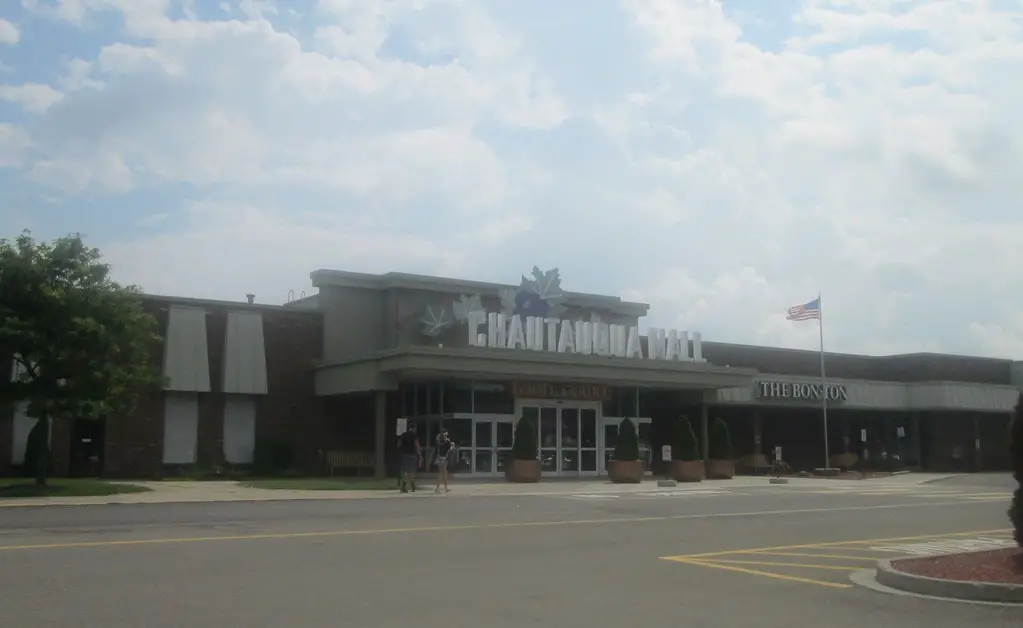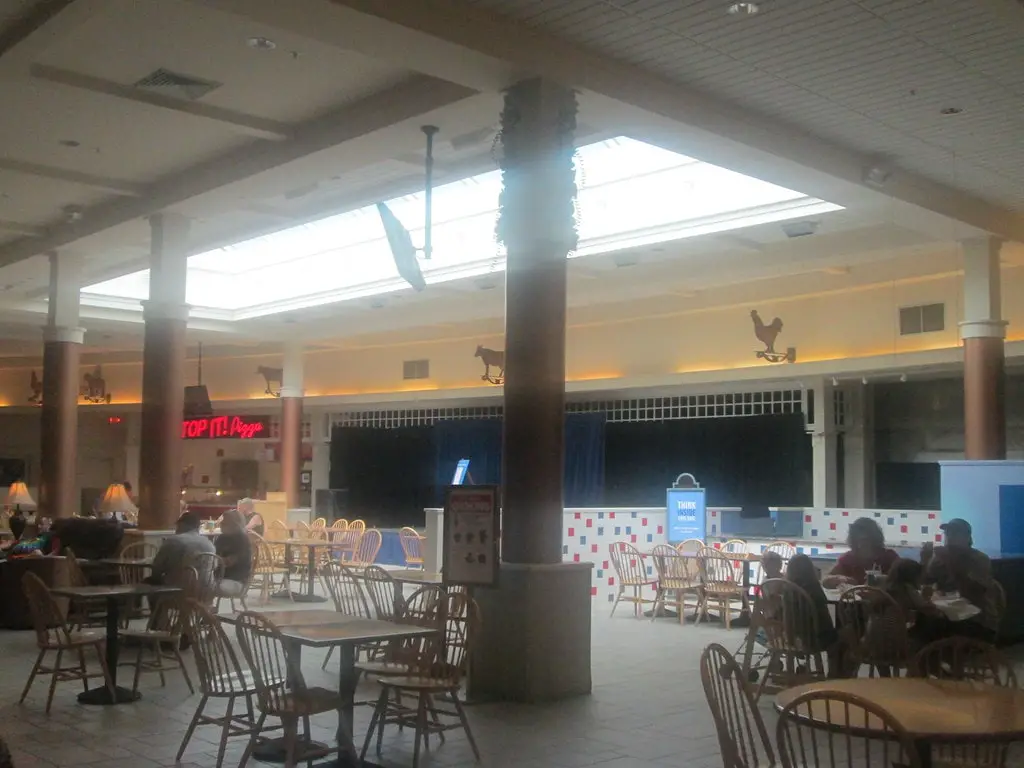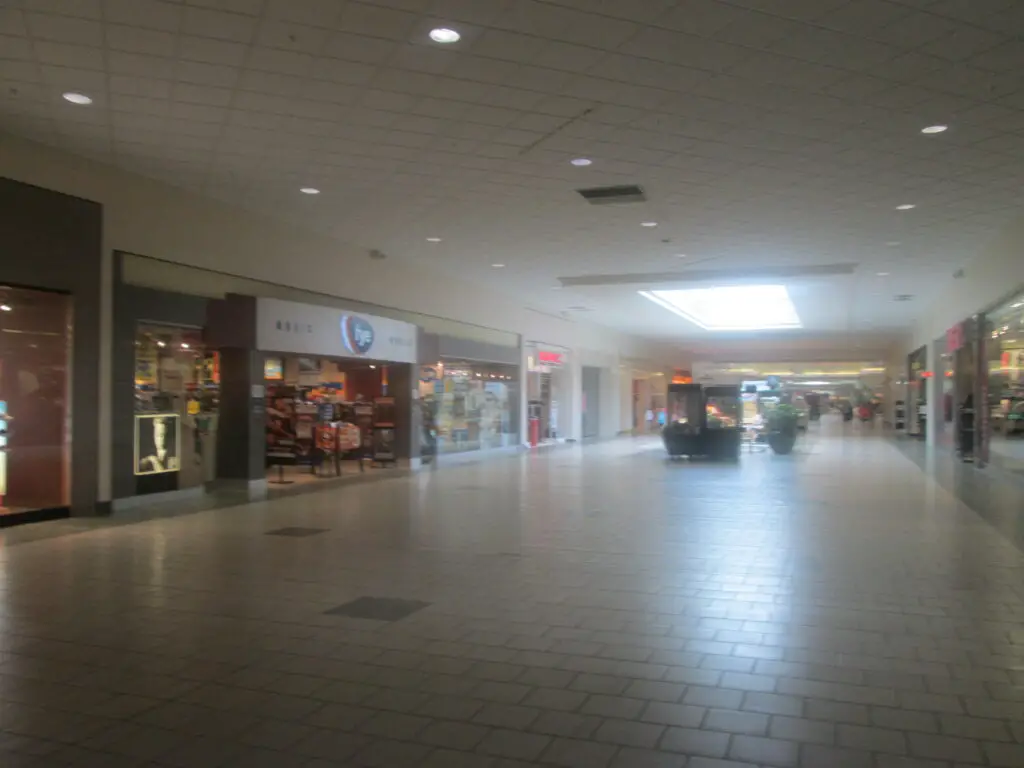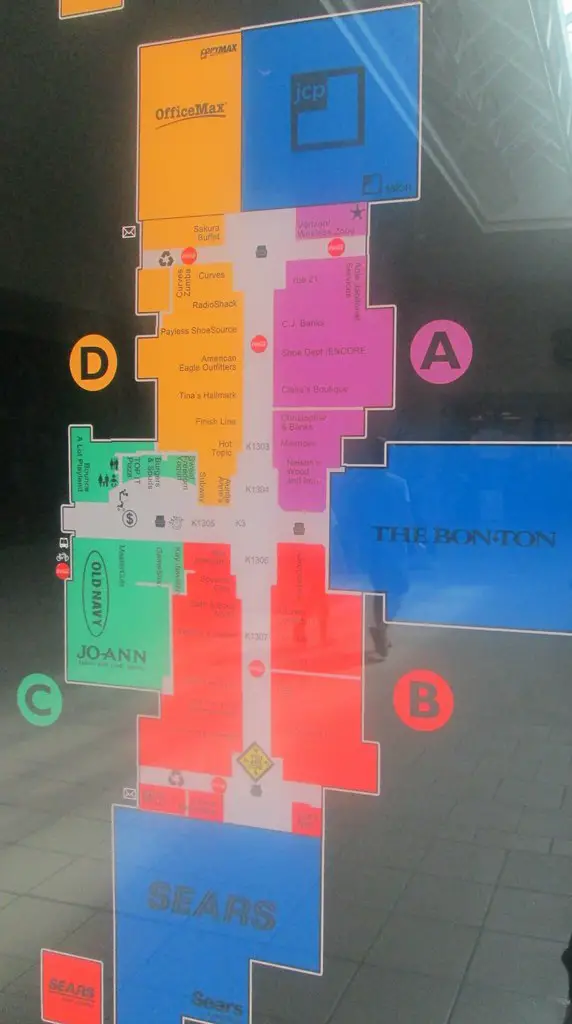The Dawn of Chautauqua Mall
In 1971, Lakewood, a village near Jamestown, New York, witnessed the opening of Chautauqua Mall, a development spearheaded by Edward J. DeBartolo, Sr. This event marked a significant milestone in the region's retail landscape, introducing a modern shopping environment to the community.
The mall, sprawling over 435,000 square feet, was designed to be a one-stop shopping destination, catering to a wide range of consumer needs and preferences.
From its inception, Chautauqua Mall was home to several anchor stores, including Sears, Woolworth, and JCPenney, among the most recognized retail brands in the United States at the time. These stores were the main attractions, drawing shoppers across the region and contributing to the mall's early success.
The presence of Quality Markets, a local supermarket chain, further enhanced the mall's appeal by offering grocery shopping convenience alongside general merchandise.
The early years of Chautauqua Mall were characterized by a bustling atmosphere and a growing tenant mix. The mall quickly became a central hub for things to do in Jamestown, New York, providing a variety of shopping, dining, and entertainment options.
Its design, featuring a single-floor layout, made it accessible and easy to navigate, appealing to families, seniors, and everyone.
The mall's role extended beyond retail, becoming a social gathering place where community members could meet, socialize, and participate in events.
As the mall flourished, it was pivotal in shaping the local retail scene, setting standards for shopping convenience and variety.
The success of Chautauqua Mall during these formative years laid the groundwork for its expansion and evolution as it adapted to changing consumer trends and the competitive retail market.
Evolution and Expansion
The late 1990s saw significant change and growth for Chautauqua Mall. In 1997, a notable event was the return of JCPenney (closed in 1986) to the mall, occupying a portion of the space left vacant by Jamesway.
This move symbolized the mall's resilience and ability to adapt to the changing retail landscape.
Around the same time, the former Woolworths store transformed into a 60,000-square-foot Bon-Ton, introducing a new anchor to the mall's lineup and expanding the variety of shopping options available.
This era also saw the addition of several new stores, including Old Navy, a brand known for its affordable fashion, and Spencer Gifts, a novelty and gift store, which added a unique flavor to the mall's retail mix.
Introducing a food court further diversified the mall's offerings, creating a new dining hub with popular chains like Orange Julius and Hot Stuff Pizza.
These additions enhanced the shopping experience and made the mall a more attractive destination for a wider audience.
The expansion efforts were not limited to retail. The mall also welcomed new locations for Electronics Boutique and Hallmark Cards, broadening its appeal to tech enthusiasts and those looking for personal gifts.
The late '90s were optimistic for Chautauqua Mall as it successfully navigated the retail industry's ups and downs, cementing its place as a key player in the region's shopping scene.

Decline of a Retail Giant
The late 2010s marked a challenging period for Chautauqua Mall, mirroring the struggles many traditional malls across the United States face.
The closure of Bon-Ton in 2018 was a significant blow, signaling the start of a decline in foot traffic and the departure of smaller tenants.
This trend was exacerbated by the broader shift in consumer behavior, with more shoppers turning to online platforms for their purchasing needs.
The loss of Sears, one of the mall's original anchor stores, later in 2018 further highlighted the mall's challenges. As one of the mall's key anchors, its closure left a large vacancy and diminished its ability to attract and retain shoppers.
The departure of such a significant tenant underscored the difficulties brick-and-mortar retail faces in an increasingly digital world.
These events were part of a larger narrative of decline for traditional shopping malls as they struggled to compete with the convenience and selection offered by online retailers.
For Chautauqua Mall, the loss of major anchors and the changing retail landscape posed serious questions about its future viability and role in the community.
As foot traffic dwindled and vacancies increased, the mall faced the daunting task of reinventing itself to remain relevant in a rapidly evolving retail environment.
One of the signs of revitalization was the opening of Ollie's Bargain Outlet in 2021. Known for its discount retail model, Ollie's brought a fresh retail concept to the mall, aiming to attract bargain hunters and value-conscious shoppers.

New Beginnings and Challenges
Ownership changes and financial challenges have added another layer of complexity to the narrative of Chautauqua Mall. Washington Prime Group, the former owner, filed for bankruptcy in June 2021, a telling sign of the strain many retail property companies face.
The group's struggle was further intensified by the COVID-19 pandemic, which led to widespread mall closures and a significant dip in revenue.
As 2022 rolled in, a new chapter began for Chautauqua Mall with the entrance of the Kohan Retail Investment Group. Kohan, which owns about 70 malls across the country, faced the challenge of revitalizing Chautauqua Mall.
This transition came with a vision to breathe new life into the mall amidst the evolving retail landscape. The mall's strategy to diversify its tenant mix also saw the introduction of non-traditional mall entities.
This shift was part of a broader effort to transform the mall into a multi-use destination, not just focused on traditional retail but also on services and experiences that could draw visitors.
Despite these efforts, the mall faced ongoing challenges. A significant tax assessment reduction in 2023 highlighted the financial hurdles, as the property's valuation was adjusted to reflect its changing fortunes.
Moreover, the closure of Dipson Theatres, a long-standing entertainment venue within the mall, painted a complex picture of a mall at a crossroads, striving for renewal against significant obstacles.
Current Anchor Tenants and Their Stories
The anchor tenants of Chautauqua Mall, each with their unique story, play a crucial role in the mall's current identity and appeal to shoppers.
JCPenney, a stalwart of American retail, has had a long and varied history with the mall. After leaving in the mid-1980s, JCPenney returned triumphantly in 1997, reclaiming its place as a key anchor.
This return was a significant vote of confidence in the mall's potential. JCPenney continues to serve as a major draw for shoppers looking for clothing, home goods, and more.

Ollie's Bargain Outlet, which opened in 2021, represents a newer retail model within the mall. As a discount retailer, Ollie's offers a wide range of merchandise at reduced prices, from housewares to toys, catering to budget-conscious consumers.
Its presence reflects the mall's shift towards value-oriented retail, aiming to attract a diverse customer base.
Planet Fitness, another anchor tenant, diverges from the traditional retail mold, offering mall visitors a health and wellness destination.
Including a fitness center within the mall's ecosystem indicates a broader trend towards incorporating lifestyle and experiential offerings, aiming to increase foot traffic and encourage longer visits.
JoAnn Fabrics, specializing in craft supplies, fabrics, and home decor, adds another dimension to the mall's retail mix.
JoAnn Fabrics is a destination for hobbyists and DIY enthusiasts, attracting a dedicated clientele and contributing to the mall's community-focused atmosphere.
Together, these anchor tenants illustrate the evolving nature of Chautauqua Mall, from a traditional shopping center to a diversified destination catering to a wide range of needs and interests.
Chautauqua Mall's Tax Assessment and Ownership Changes in 2023
In 2023, Chautauqua Mall changed its tax assessment, reflecting the ongoing challenges and adjustments within the retail sector.
Chautauqua Mall Realty Holding LLC, the entity that had recently acquired the mall, initiated a legal action seeking a substantial reduction in the property's tax valuation.
The initial request aimed to lower the valuation from $6 million to $670,000, a move that underscored the changing fortunes of brick-and-mortar retail spaces.

After several legal proceedings, the mall's valuation was set at $4 million through 2026. This decision marked a compromise between the mall's request and the existing valuation, aiming to reflect the property's current market value accurately.
Moreover, the year saw the closure of Dipson Theatres, a tenant within the mall, citing maintenance issues such as a leaky roof as contributing factors.
This closure indicates the mall's operational challenges, emphasizing the need for continued investment in maintenance and infrastructure to retain tenants and attract visitors.
The developments in 2023 serve as a microcosm of the broader challenges facing traditional shopping malls as they navigate the complexities of property valuation, taxation, and tenant retention in an increasingly digital and convenience-oriented marketplace.
For Chautauqua Mall, these adjustments represent both the hurdles and the potential pathways for revitalization and adaptation in the face of changing consumer behaviors and economic pressures.
Looking to the Future
As Chautauqua Mall looks towards the future, the path is filled with opportunities and challenges. The retail environment continues to evolve rapidly, with online shopping and changing consumer preferences posing ongoing difficulties.
However, the mall's efforts to diversify its offerings and create a multi-use space present a potential blueprint for success.
The possibility of further redevelopment or repurposing parts of the mall into non-retail spaces, such as offices, community centers, or residential units, could provide new ways to attract visitors and serve the community.
This mixed-use approach could breathe new life into the mall, making it a vibrant part of Lakewood's social and economic fabric.

Engagement with the community and understanding their needs will be crucial. The mall could host more events, offer spaces for local artisans and businesses, and incorporate more entertainment and recreational activities.
By doing so, Chautauqua Mall can continue to be a place where people shop, meet, learn, and experience new things together.
The future of Chautauqua Mall will depend on its ability to innovate and adapt to the changing landscape of retail and community needs.
With a focus on flexibility, community engagement, and diversification, the mall can aim to remain a valuable and cherished part of Lakewood for years to come.
